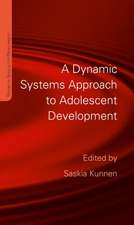Stop the Screaming: How to Turn Angry Conflict with Your Child Into Positive Communication
Autor Carl Pickhardten Limba Engleză Paperback – 31 dec 2008
Parenting expert Carl E. Pickhardt brings his considerable experience to tackling the most pervasive and difficult problems parents face in childrearing. Whereas many books on family conflict focus on the prickly teenage years, Pickhardt takes the long view and treats a broad range of ages--starting from the early toddler years all the way through college. He empowers parents to turn conflict into an opportunity to engage with their children on a deeper level. Readers will learn to:
- Manage emotion during a fight so that you can hear the feelings behind the vitriol without taking offense.
- Give criticism to children in a way that focuses on the behavior and not the person.
- Find a hook inside silent tension that will let you connect with your children's feelings and show them a way to empathize with yours.
- Consider your children's point of view during a disagreement and teach them to voice their grievances with respect.
With a distinctive emphasis on how to distinguish types of conflict dependent on age and gender, Pickhardt shows parents how to turn the daily battles into opportunities for growth. This is a practical guide that helps parents confront difficult issues with which all families grapple.
Preț: 109.66 lei
Nou
20.99€ • 21.83$ • 17.33£
Carte disponibilă
Livrare economică 24 martie-07 aprilie
Specificații
ISBN-10: 0230606458
Pagini: 237
Dimensiuni: 140 x 212 x 16 mm
Greutate: 0.22 kg
Editura: Palgrave MacMillan
Locul publicării:Basingstoke, United Kingdom
Descriere
- Manage emotion during a fight so that you can hear the feelings behind the vitriol without taking offense.
- Give criticism to children in a way that focuses on the behavior and not the person.
- Find a hook inside silent tension that will let you connect with your children's feelings and show them a way to empathize with yours.
- Consider your children's point of view during a disagreement and teach them to voice their grievances with respect.
With a distinctive emphasis on how to distinguish types of conflict dependent on age and gender, Pickhardt shows parents how to turn the daily battles into opportunities for growth. This is a practical guide that helps parents confront difficult issues with which all families grapple.
Cuprins
Chapter One: Cooperation and Conflict
Chapter Two: Emotion and Conflict
Chapter Three: Communication and Conflict
Chapter Four: Intolerance and Conflict
Chapter Five: Resemblance and Conflict
Chapter Six: Change and Conflict
Chapter Seven: Authority and Conflict
Chapter Eight: Compromise and Conflict
Appendix A: Behaviors to Avoid in Family Conflict
Appendix B: A Code of Family Conflict
Appendix C: In Case of Violence
Further Reading Notes
Recenzii
Praise for The Connected Father:
'As the father of two teenagers, I found Pickhardt's book to be an important, supportive, and straightforward look at one of the most challenging stages of fatherhood'
-Armin Brott, author of The Expectant Father and Father for Life
'This book is a must-read for any parent who has an only child'
-Texas Family
'Insightful and helpful'
-Austin Statesman
Notă biografică
Caracteristici
Pickhardt's Future of Your Only Child had positive reviews in Library Journal and Texas Family Magazine; Only Child Magazine and Wave Magazine will run review. Article by Carl in Austin American Statesman. Radio interview on 'Parent's Journal' in May. Texas Family said, 'A must-read for any parent who has an only child'
While most conflict resolution books focus on the thorny teenage years, Pickhardt takes a holistic approach, looking at all stages of the parent-child relationship. He is also original in that he shows that conflict is necessary and should be welcomed. He shows how to best use it to shape a child's development, right from crib and all the way to college
In the tradition of The Sears Discipline Book, this would be a one volume guide to conflict from toddlers to older kids. Parents can refer to it over time and address the particular problems of each stage












